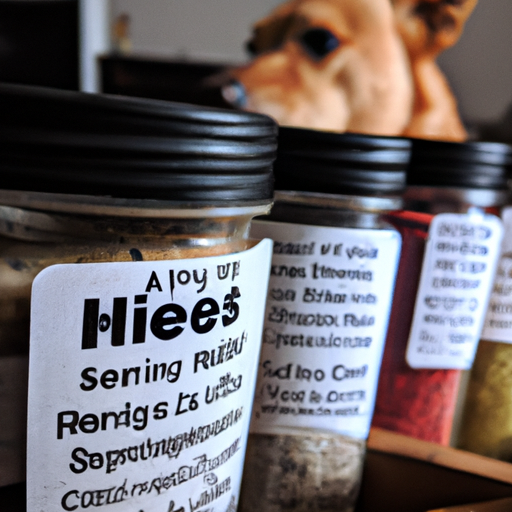As a caregiver for your furry friend, you’ve probably found yourself questioning which spices are safe for your dog to consume. In this detailed guide, we will explore the world of spices from your dog’s perspective, highlighting those that are safe and those that you need to keep far from your pet’s reach.
H2: The Spices Your Dog Can Safely Enjoy
While it’s true that many spices can be harmful to dogs, there are a select few that not only are safe, but can also offer numerous health benefits. Here are some of those spices:
-
Turmeric: This golden spice is known for its anti-inflammatory properties. It can aid in digestion and help alleviate symptoms of arthritis in dogs.
-
Ginger: Similar to turmeric, ginger can help with digestion and nausea. It’s also beneficial for dogs suffering from heartworm or arthritis.
-
Cinnamon: In small amounts, cinnamon can be a tasty treat for your dog and can help regulate blood sugar levels.
-
Basil: This herb is safe for dogs and can help combat free radicals due to its antioxidant properties.
-
Parsley: Not only is parsley dog-safe, but it’s also a natural breath freshener for your pet.
H2: Spices That Are Off-Limits for Dogs
On the other hand, there are spices that are potentially toxic for dogs and should be avoided at all costs. Here are a few of those:
-
Onion and Garlic Powder: These two can cause damage to red blood cells, leading to anemia in dogs.
-
Nutmeg: This spice can cause severe abdominal pain, seizures, and in extreme cases, death in dogs.
-
Chili Powder: Capsaicin, the component that makes chili peppers hot, can cause discomfort and digestive issues in dogs.
-
Salt: While not technically a spice, it’s worth noting that too much salt can lead to sodium ion poisoning in dogs.
H2: The Benefits of Safe Spices for Dogs
Incorporating the safe spices into your dog’s diet can provide numerous health benefits. Here’s a quick rundown:
- Boosts Immunity: Many safe spices have antioxidant properties that can help boost your dog’s immune system.
- Aids in Digestion: Spices like ginger and turmeric can help with digestion and reduce nausea.
- Improves Oral Health: Parsley can freshen your dog’s breath, improving oral health.
- Reduces Inflammation: The anti-inflammatory properties of certain spices can help alleviate symptoms of arthritis.
H2: How to Incorporate Safe Spices into Your Dog’s Diet
Incorporating these spices into your dog’s diet should be done gradually and in moderation to avoid upsetting their stomach. Here are some tips:
- Start small: Introduce a small amount of the spice first to see how your dog reacts.
- Monitor: Keep an eye on your dog for any signs of discomfort or allergies.
- Mix with food: Mix the spice with your dog’s regular food to make it more palatable.
H2: Frequently Asked Questions (FAQs)
Q: Can I give my dog spices every day?
A: It’s best to give spices in moderation. Consult your vet for the best advice.
Q: Are there any side effects of giving spices to my dog?
A: Some dogs might have allergic reactions. Always start with a small amount and monitor your dog.
Q: Can puppies have spices too?
A: It’s best to wait until your dog is fully grown before introducing spices into their diet.
Q: What if my dog accidentally consumes a harmful spice?
A: Contact your vet immediately if you suspect your dog consumed a harmful spice.



